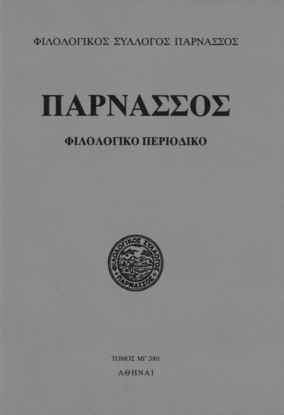Οι κατ' Αριστοτέλη πολιτικές και κοινωνικές προεκτάσεις της ελευθερίας στο δημοκρατικό πολίτευμα
Part of : Παρνασσός ; Vol.ΜΘ, No.1, 2007, pages 171-180
Issue:
Pages:
171-180
Parallel Title:
The political and social implications of freedom in democracy according to Aristotle
Author:
Abstract:
In his classification of political systems, Aristotle considers democracy (idemokratia), as it was commonly practiced in his time, to be a flawed version of the ideal democratic regime, which he calls politela. According to some scholars, the political system that Aristotle calls “democracy” is in fact what we would label “dictatorship of the proletariat”. Freedom (eleutheria), which is a perequisite for attaining felicity (eudaimonia), i.e. both material and moral completion, can be achieved in both demokratia and politela. In demokratia, where the will of the many (i.e. the poor) prevails, each and every citizen can be free in the sense of contributing to social harmony and justice, whereas in politela freedom is perceived rather as a personal responsibility, depending on the moral qualities of individual citizens. Either way, the concept of freedom is not, according to Aristotle, an abstract notion, but a constant search for equilibrium between moral, social and political considerations and practices.
Subject (LC):




